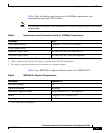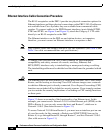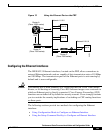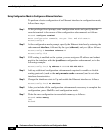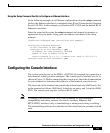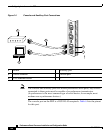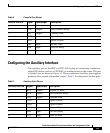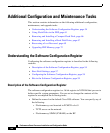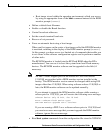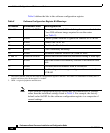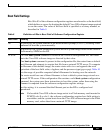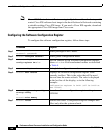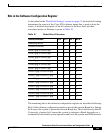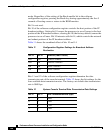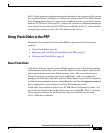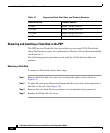
55
Performance Route Processor Installation and Configuration Guide
OL-11656-01
Additional Configuration and Maintenance Tasks
–
Boot image stored within the operating environment, which you access
by using an appropriate form of the boot command entered at the ROM
monitor prompt (
rommon>)
• Define a default boot filename.
• Enable or disable the Break function.
• Control broadcast addresses.
• Set the console terminal baud rate.
• Recover a lost password.
• Force an automatic boot using a boot image.
When you first power on the router, a boot image called the RP ROM monitor
is executed, resulting in the display of the ROM monitor prompt (
Rommon>).
At this prompt, you have access to a limited set of commands that enable you
to set values in the software configuration register and to perform a number
of other tasks.
The RP ROM monitor is loaded into the RP Flash ROM when the RP is
manufactured. You can use it to boot the system from local Flash memory
devices. The RP ROM monitor software can be upgraded in the field, if
necessary.
Note All PRP-2 cards shipped prior to the release of Cisco IOS release
12.0(30)S are provided with a ROM monitor version installed at the
factory. This ROM monitor version cannot be changed while using IOS
images older than 12.0(30)S. When using software release 12.0(30)S or
later, the ROM monitor software can be updated normally.
If you attempt to upgrade the ROM monitor software while running a
release prior to 12.0(30)S, you will receive the following error message:
Unknown device (mfg id 0x01, dev id 0xA3
Error: Unknown Flash Device type!
GRP ROM monitor upgrade won't continue
If you are running a PRP-2 on a software release prior to 12.0(30)S and
you receive an error message that you must upgrade the ROM monitor
software, ignore this error message.
• Read boot system commands from the configuration file stored in NVRAM.



